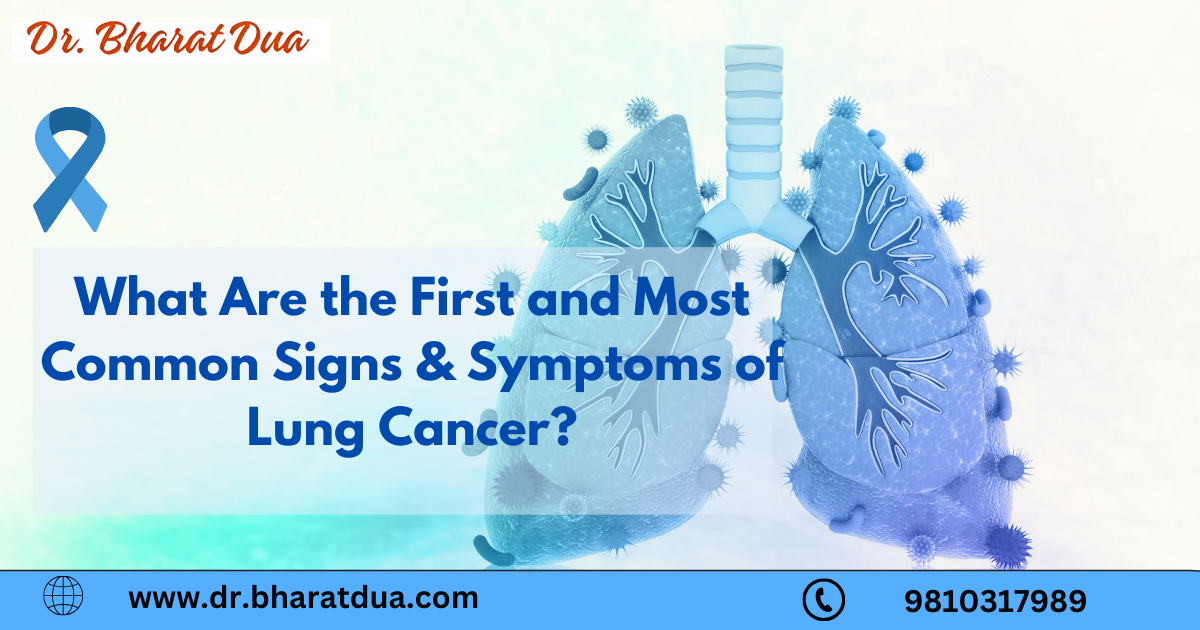Introduction
Lung Cancer is one of the most common and serious types of cancer. It often develops without noticeable symptoms in the early stages, making early detection challenging. Recognizing the first warning signs can lead to earlier diagnosis and better treatment outcomes. Lung Cancer
This article highlights the early and most common symptoms of lung cancer so you can seek medical attention when necessary.
What Is Lung Cancer?
Lung Cancer occurs when abnormal cells in the lungs grow uncontrollably. It is often categorized into two main types: non-small cell lung cancer (NSCLC) and small cell lung cancer (SCLC). NSCLC is more common, while SCLC tends to spread more quickly.
Smoking is the leading cause of lung cancer, but non-smokers can also develop the disease. Exposure to harmful substances like radon gas, asbestos, Best Cancer Doctor in Gurugram and air pollution increases the risk. Genetic factors may also play a role.
Early Signs of Lung Cancer
Persistent Cough That Won’t Go Away (250 words)
One of the first signs of lung cancer is a chronic cough. Unlike a temporary cough from a cold or flu, this cough lingers for weeks or months. It may worsen over time and produce mucus or blood.
A cough related to lung cancer often sounds different from a regular cough. It may be deeper, hoarse, or painful. Some people experience coughing fits that disrupt daily activities and sleep.
If you have a persistent cough that doesn’t improve with medication, it’s important to consult a doctor. While a chronic cough can be linked to other conditions like asthma or infections, ruling out lung cancer is crucial for early detection.
Shortness of Breath and Wheezing
Breathing difficulties can signal lung cancer, especially if they develop suddenly or worsen over time. Tumors in the lungs can block airways, making it harder for air to pass through.
Wheezing, a high-pitched whistling sound when breathing, may also occur. Some patients mistake it for asthma or allergies, leading to delayed diagnosis. Best Cancer Doctor in Gurugram Shortness of breath, especially during simple activities like climbing stairs, should not be ignored.
If you notice persistent wheezing or unexplained shortness of breath, schedule a medical check-up. Doctors can perform imaging tests to determine whether lung cancer is affecting your respiratory function.
Chest Pain That Worsens Over Time
Lung cancer can cause persistent chest pain that doesn’t go away with rest or medication. The pain may feel sharp, dull, or aching and can spread to the shoulders or back.
Tumors pressing on nerves in the chest wall or spreading to the ribs may contribute to discomfort. Some people experience pain that worsens with deep breathing, coughing, or laughing.
Since chest pain can have many causes, including heart problems and infections, it’s important to seek medical advice. Best Cancer Doctor in Gurugram A thorough evaluation can help identify the underlying issue.
Other Common Symptoms to Watch For
Unexplained Weight Loss
Sudden and unexplained weight loss is a warning sign of many cancers, including lung cancer. If you lose 10 pounds or more without changes in diet or exercise, consult a doctor.
Lung cancer can alter metabolism and suppress appetite, leading to significant weight loss. Rapid weight loss may indicate that cancer has spread beyond the lungs.
Fatigue and Weakness
Ongoing fatigue that doesn’t improve with rest may be an early sign of lung cancer. Cancer cells affect the body’s ability to produce energy, leading to persistent tiredness and weakness.
Unlike normal tiredness, cancer-related fatigue can interfere with daily activities and reduce overall quality of life. If fatigue is accompanied by other symptoms, medical evaluation is recommended.
Coughing Up Blood
Coughing up blood, known as hemoptysis, is a concerning symptom that requires immediate medical attention. Even small amounts of blood in mucus can indicate lung cancer or other serious conditions.
Blood may appear bright red or rust-colored. If you notice blood in your sputum, schedule a doctor’s visit as soon as possible.
When to See a Doctor
If you experience any of these symptoms for more than a few weeks, it’s important to see a healthcare professional. Early diagnosis can improve treatment success and survival rates.
Doctors may perform imaging tests, biopsies, and lung function tests to determine the cause of symptoms. If lung cancer is detected, treatment options include surgery, chemotherapy, radiation therapy, and targeted therapies.
Conclusion
Recognizing the early signs of lung cancer can make a significant difference in treatment outcomes. A persistent cough, shortness of breath, chest pain, and other symptoms should never be ignored.
If you or someone you know is experiencing these warning signs, consult a doctor promptly. Early detection is key to better health and improved chances of recovery.


 Discover how radiation oncologists are advancing melanoma treatment with targeted radiation, modern tech, and powerful therapy combinations.
Discover how radiation oncologists are advancing melanoma treatment with targeted radiation, modern tech, and powerful therapy combinations. Kidney cancer starts when abnormal cells in the kidneys grow uncontrollably. Most cases are renal cell carcinoma, accounting for nearly 90% of diagnoses.
Kidney cancer starts when abnormal cells in the kidneys grow uncontrollably. Most cases are renal cell carcinoma, accounting for nearly 90% of diagnoses. Discover everything about bone sarcomas, from symptoms and causes to diagnosis, treatment, and survival rates. Know the early signs to act early.
Discover everything about bone sarcomas, from symptoms and causes to diagnosis, treatment, and survival rates. Know the early signs to act early.